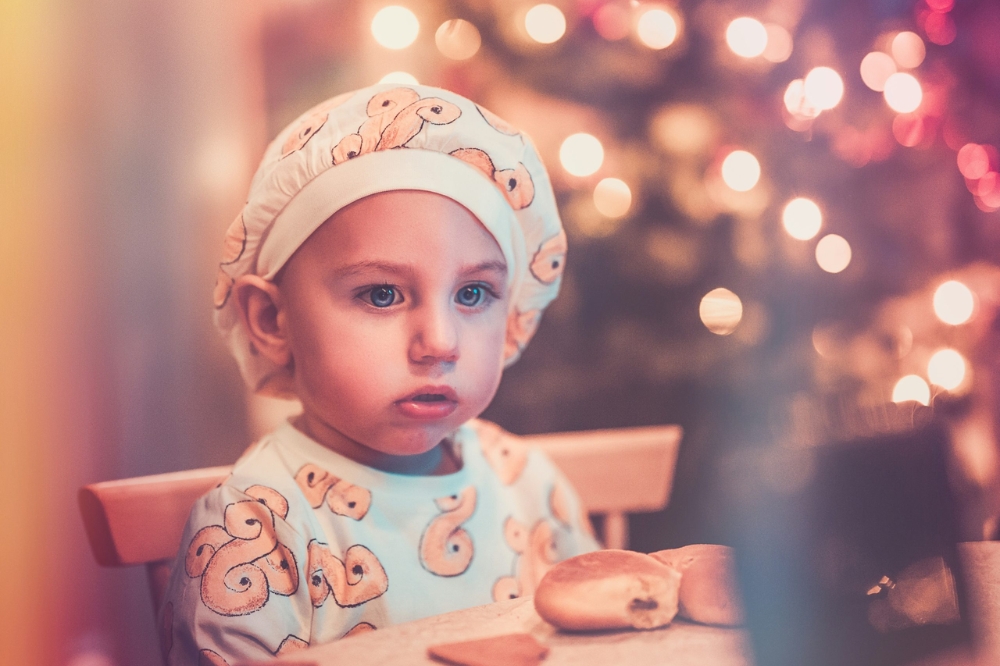Firstly, lets understand that your little one has sensory sensitivities, a need for routine and structure and a fear of new foods. Therefore, eating out for Christmas has the potential to be a disaster.
Christmas parties include sparkling decorations, shiny new Christmas toys, fun family festivities and lots of food. This sounds like fun, right? No, not if you have a child with an autism spectrum disorder; the change in routine, big events, loud noises and large crowds can make it feel stressful and overwhelming, which can impact on your child’s appetite.
Most families report that they dread Christmas functions, because their child will avoid food, hide at meal times and will cry and fall apart at the thought of food. This is a reality for many families! However, there are a few strategies that families can put in place to help their little one feel more calm at Christmas functions, and who knows, maybe even try a new food.
Here a few tips to prevent a Christmas catastrophe:
- Create a social story to prepare your child for the day, some ideas include:
- In a few weeks we will go to ‘someone’s house’
- We will see family and friends
- Some people will wear Christmas clothes
- In the morning we will wake up and you can open your presents
- You can also have your favourite breakfast
- You can always wear your favourite clothes
- We will then get in the car and drive to ‘someone’s house’
- When we arrive Mummy and Daddy will say hello to everyone, you can just wave or stand next to Mummy and Daddy and smile.
- If somebody gives you a present you can say “Thank you” or just smile.
- When lunch is ready for everyone to eat, you will have your favourite food.
- You can choose to sit with Mummy and Daddy, or your friends/ cousins or on your own.
- After lunch Mummy and Daddy will chat with everyone for some time. And you can choose to play with friends/ cousins or you can bring your own games.
- After this we will go home and if you are still hungry, we will make you a snack and then we can get ready for bed.
- Prior to the event you can ask your child to help you make fun Christmas treats, such as; cookies, ginger bread biscuits or rum balls (for example). If your child does not eat these foods, please do not ask them to eat the food once it is made. Asking your child to eat food when they are not ready, can often cause them stress. But you can ask them to talk about the sensory properties of the food, the colour, the shape, and the smell. If they are ready they can take a lick. This can be a super fun activity, which can help your child feel excited about the event. Your child can even have the honour of carrying the Christmas treats inside and giving to the host.
- Prior to the event you can talk to your child about some food they would like to take to the Christmas lunch. Ask your child about what foods they would like packed in a lunchbox to take to the event. It is important for children to know they will not go hungry on the day, and that they will have their own yummy foods to enjoy, just like everyone else. This also might entice your child to sit at the table with others. If they can eat their safe foods with peers/ family, they will also learn about new food through social role modelling. Furthermore, once the stress is removed from eating, they might actually feel calm enough to try a new food.
- To help your child learn about new foods on Christmas day, you can ask your little one to serve you a slice of roast pork or a cob on the corn on your plate. Getting your child involved in serving new food on parent’s plate, is a safe and non-threatening way to teach your child about new food. When you eat the food, try not to say the words “yummy” or “delicious”. As these are emotive words and it is important to take the emotion out of eating. Also keep in mind that your child has different sensory reactions to you, so they might not actually find the food yummy. You can however, smile as you are eating the food and describe the sensory components of the food. For example, is the food sweet or salty, is it soft or crunchy in your mouth. Does the food have a big smell? If your child, says “Yuck, I don’t like that”. You can calmly say “That’s okay you are still learning to eat that food”. This type of language helps a child to stay calm around new food and understand that they are learning to eat new food, and they can learn about new food with their eyes, fingers, nose and if their ready, their tongue.
- It might also be a good idea to call family/ friends that you know are attending the event and politely ask them not to offer your child food or force them to try anything. It is important for others to know how their ‘good intentions’ might actually create a feeding nightmare. This can be a sensitive topic, and not all family members or friends understand the feeding difficulties. Therefore, try your best to stay calm and patient.
Christmas lunch should be a day full of laughter, delicious food and creating beautiful family memories. Ensure your child feels safe and comfortable. If your little one knows what to expect on the day, has access to safe and enjoyable food and a moment for quite time, you will have created a perfect day.
Melanie Bouras
Paediatric Dietitian
